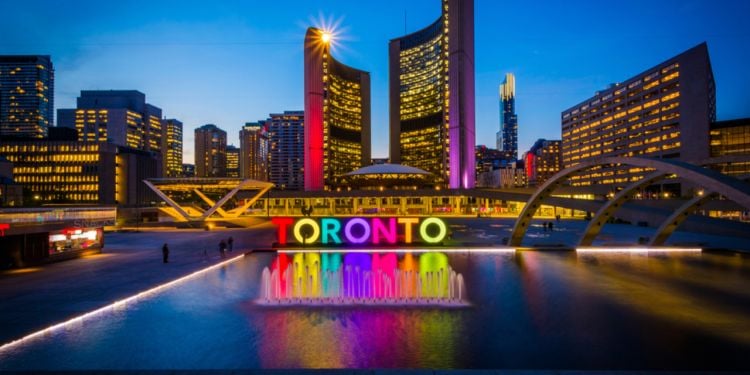
Thinking about relocating to Toronto but unsure about what to expect? Find out more about this significant Canadian city, including its demographics, economy, climate, social scene, and other aspects.
Toronto demographics
Toronto is a relatively young city, with a median age of 39.3 and an estimated population of 2.9 million in 2023. The Greater Toronto Area has a total population of over 6 million. There are more women in Toronto (52%) than men (48%). Almost 47% of residents are foreign-born, making Toronto a city of immigrants.
Statista predicts that Toronto will welcome approximately 159,679 immigrants between 2021 and 2022. The city's rich history and cultural diversity often leave a lasting impression on people. With local and international educational institutions conveniently located every 100 meters, coupled with a low unemployment rate of just 6.4% in September 2023, Toronto is recognized as one of the best destinations for expatriates worldwide. While thousands of immigrants arrive in the city annually with diverse expectations, this article briefly outlines some general aspects you can anticipate once you've made Toronto your new home.
Toronto's climate
Toronto experiences cold winters, with some days being particularly challenging due to both low temperatures and snowfall. Conversely, summers are characterized by warm and pleasant weather. Spring and autumn are relatively brief, with a generally warm climate prevailing from April to October and cooler conditions from November to March. The peak of heat occurs between July and August, while the coldest period falls between January and February. For the current weather in Toronto, you can check the official Canadian government page.
Social life in Toronto
Toronto is a dynamic city! It's a melting pot of social, cultural, and ethnic diversity, making it a metropolis where you're bound to meet people from various backgrounds. The nightlife goes beyond your expectations, with clubs and nightclubs lining almost every street. Take, for instance, Rebel, Toronto's largest nightclub, spanning a whopping 45,000 square feet with a stunning 65-foot stage. The city abounds with broadcast and media networks, museums, art galleries, national historic sites, shopping malls, and sporting events, offering a wide array of leisure options. Additionally, the Toronto International Film Festival stands out as one of the world's most prestigious international festivals.
For those part of a religious community, finding places of worship in Toronto is easy, as the city boasts a variety of churches, mosques, and temples. The choice is yours to make based on what suits you best. Tolerance is a common credo across the city, and for Torontonians, compassion holds immense value — it extends beyond mere religious affiliations.
Toronto neighborhoods
Due to its rich historical and cultural diversity, Toronto's various neighborhoods showcase significant variations in housing. You'll encounter residences with Portuguese, English, and French influences. In addition to Old Toronto, notable areas include the historic and trendy Distillery District, the Entertainment District housing most of the city's attractions, Chinatown, the retro charm of Kensington Market, the transformed former industrial hub now known as Liberty Village, and family-oriented neighborhoods such as Davisville Village, St. Clair & Yonge, Mount Pleasant, and Bloor West Village, to name a few. The industrial and financial districts stand out as the most modern, featuring some of the country's most sophisticated skyscrapers, some serving as multi-purpose spaces, either entirely residential or with office spaces only.
The Toronto economy
Toronto's economy is robust, serving as Canada's financial capital and a prominent international business and finance center. As reported by ig.com and Strategie-bourse, the city hosts the world's ninth-largest stock exchange by market capitalization and houses the national headquarters of Canada's five largest banks. Well-established telecommunications networks, media, information and communication technology (ICT), and film publishing industries collectively employ millions of people in the city. While there are numerous job opportunities with attractive incomes, it's worth noting that Toronto's cost of living ranks among the highest among northern hemisphere cities.
Safety in Toronto
According to Radio-Canada, there's been a decrease in shootings in Toronto in 2023, maintaining the city's status as one of the safest in North America. In 2021, it was even ranked the second safest city globally by the Economist Intelligence Unit. Like any major city, there are specific areas not recommended for evening visits, such as Yonge Street and Cabbagetown South. However, it's important to note that Toronto overall is not a cut-throat city. Even for a woman traveling alone in Toronto, it is generally considered safe.
Useful links:
We do our best to provide accurate and up to date information. However, if you have noticed any inaccuracies in this article, please let us know in the comments section below.








